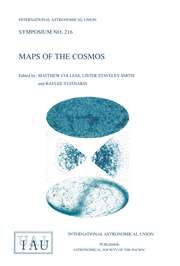No CrossRef data available.
Article contents
Statistical Study of Solar Eruptive Events Observed with Nobeyama Radioheliograph at 17 GHz
Published online by Cambridge University Press: 13 May 2016
Abstract
We report statistical features of 49 eruptive prominences observed near solar maximum (1999-2000) with Nobeyama Radiohelograph. Here we focus on the location and related phenomena of the prominence activity. By using white light synoptic maps from LASCO C2 coronagraph, we found that most of the events are associated with some heating process taking place around the prominence site, and occur along pre-existing streamers associated with CMEs as well as small mass ejections. These features suggest that streamers connect the activity on the solar surface toward the outer corona.
- Type
- Session IV: Structure and Dynamics of the Transiton Region and Corona
- Information
- Copyright
- Copyright © Astronomical Society of the Pacific 2001


